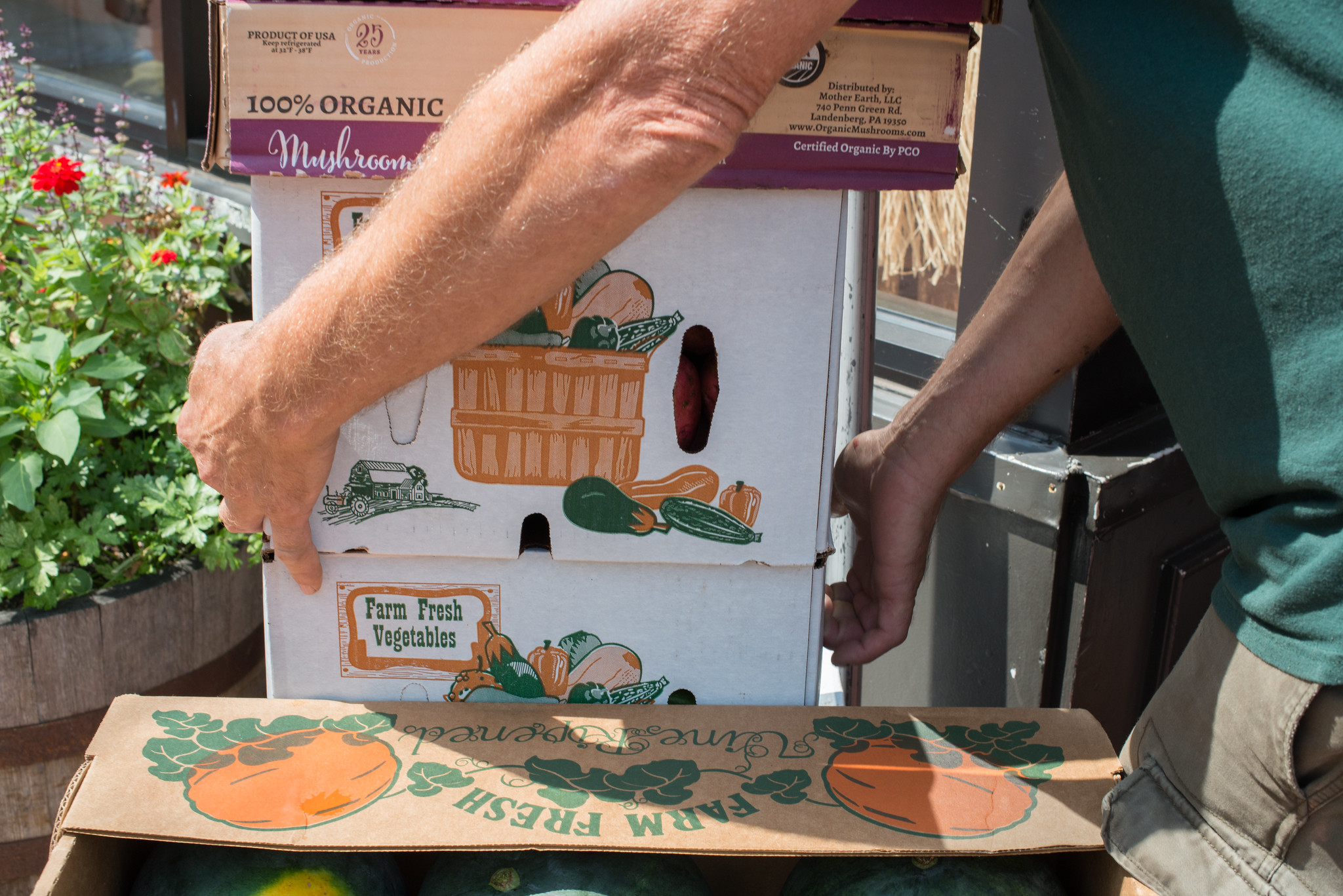
Many institutions small-scale farmers typically rely on—like farmers’ markets, school systems, and local restaurants—are closing, forcing many communities to assess their food systems’ resilience against disaster. (USDA)
Small-scale farmers and meat producers rely on local restaurants, school systems, and farmers’ markets for the majority of their income. But closures during the COVID-19 pandemic are forcing farmers to face dramatic losses in revenue.
The National Sustainable Agriculture Coalition released an impact assessment last month, estimating local and regional markets will face a total loss to the economy of up to $1.32 billion from March to May 2020.
The NSAC assessment also outlined policy recommendations for mitigating these losses, including:
-
explicitly including local food and farm businesses in small business support programs;
-
expanding incentives for small food and farm businesses to move online;
-
and accelerating waivers and expanding flexibility for current USDA programs.
The CARES Act passed by Congress last week provides $24 billion in emergency aid for farmers and ranchers, but doesn’t specify how the aid will provide direct assistance to small-scale producers.
But not all is lost for small-scale farmers and producers. While the institutions farmers typically rely on are closing, people are buying more products in grocery stores. Retail meat sales were 70 percent higher this March compared to last year.
This Civil Eats article indicates another bright spot: every producer they contacted during their research had seen increased CSA subscriptions and direct-to-consumer sales. The article also outlines many localized solutions for small-scale farmers, like pop-up markets in Portland, Boulder, and Houston, and emergency home delivery services on the East Coast.
While COVID-19 pandemic-related closures provide an opportunity for local food systems to flourish in new ways, president of Georgia Organics Alice Rolls said to Civil Eats, “it’s not going to replace lost revenues” and more work is needed to create resilient food systems that safeguard against future disasters.
Read More:
-
Pastured Meat Producers are Facing Catastrophic Losses. These Efforts Could Help Them Weather the Pandemic. (
Civil Eats)
-
What’s in the CARES Act for Food and Agriculture (Farm Bureau)
-













